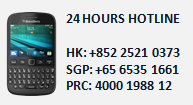Turkey

Customs Fines for cargo discrepancies
Members are alerted to a serious repeat issue over cargo discharge quantities in Turkey. In particular if there is an excess or over landing of cargo as against the Bill of Lading figures.
Consequences include Customs fines as well as extra storage costs, and delays to the vessel.
This issue has been known to affect both dry bulk and liquid cargoes consigned to Turkey. In one recent example, a discrepancy of almost 300 mt was estimated to lead to a fine of about USD140,000.
The Association's Correspondents have advised that under Turkish Customs Law, it is the vessel that has to provide an explanation of any discrepancy between the quantity determined by the Customs Office and the cargo documents. Further, it should be noted that the 1st paragraph of the Article 237 of the Customs Code numbered 4458, which governed the fines for both short and over landed cargoes, reads as follows (free translation):
"In the default of demonstrating within the period prescribed by the customs administration, that the packages, proved to be deficient as a result of the amount registered in the summary declarations or the commercial or official papers used as summary declarations submitted to the customs administration by the owners, captains and agents of the vehicles, have not been loaded from their provenance or have been unloaded in another port or lost or stolen due to any accident or average; and provided that the tariff classification of the goods kept within these deficient packages cannot be determined, a fine shall be charged on these goods, at an amount under their tariff classification or if tariff classification cannot be determined, under the highest dutiable classification of the chapter in accordance with the nature and the description of the goods."
In order to successfully challenge a fine, our Correspondents advise that the responsible parties, namely Owners / Master / and local Agents of the vessel must provide a certificate from the loading port for the discrepancy of the cargo quantity explaining the position. This document, so called : "Correction Manifest" is to be obtained from the load port to be submitted to the Customs authorities at the discharge port. Such a letter would need to be obtained from the loading port Agent and consularised by the Turkish Consulate and ideally endorsed by the Harbour Master or local Chamber of Commerce, as well as notarized by a local Public Notary.
Any such steps need to be taken within three months. In cases where the Owners do not obtain neither a "Correction Manifest" nor an explanation letter within the permitted period of time, the fine will be finalised. Afterwards, if the amount of the administrative fine is paid within a month, a reduction of 25% may be applied for early settlement.
Estimating fines has proven difficult as a great many factors go into the calculation, which is based on a number of different taxes and costs. A recent example from Correspondents Omur Marine Ltd. is as follows:
The calculation of Value added tax for customs duty / fine:
Value added tax = value added tax basis X % 18 (this ratio differs according to the type of the good)
Value added tax basis = value of goods + freight + insurance + customs duty + delivery order costs + warehouse costs + other expenses + contribution to education + special communication tax
(Please bear in mind that every cost and duty mentioned above has a special way of calculation.)
For example:
Warehouse costs = (CIF x 1, 3, 5, 10 Ten Thousandths) x Days x Warehouse service fees.
As you can see, since the fine to be imposed consists of various taxes, costs etc. calculation of which has different way of calculation, the calculation is, therefore, getting complicated and requires expertise.
Skuld Case Study:
Members were faced with a significant fine over an alleged over landing of cargo of almost 160 mt. Skuld appointed Correspondents Omur to respond, and the attending Surveyor recorded an actual excess of discharge of cargo compared to the Bill of Lading figures. Further investigation revealed a clerical error was made at the Load Port. With assistance from Correspondents Scandinavia P&I it was possible to have the shipment documents rectified, and the fine contested. Keen attention by all concerned led to a positive outcome for Skuld's Members.
The Association would again remind Members that because of the key and central importance of the Bill of Lading to the entire shipping venture, utmost care and attention has to be paid to its preparation and completion. A careless error can have significant and costly consequences. When in doubt Masters should not sign or authorise documents that they do not believe accurately reflect the cargo laden on board their vessel. The Association's Correspondents and Claims Handlers will also be ready to assist Members to deal with these issues when they arise.
In case of further queries, Members are asked to contact the Association: lossprevention@skuld.com





